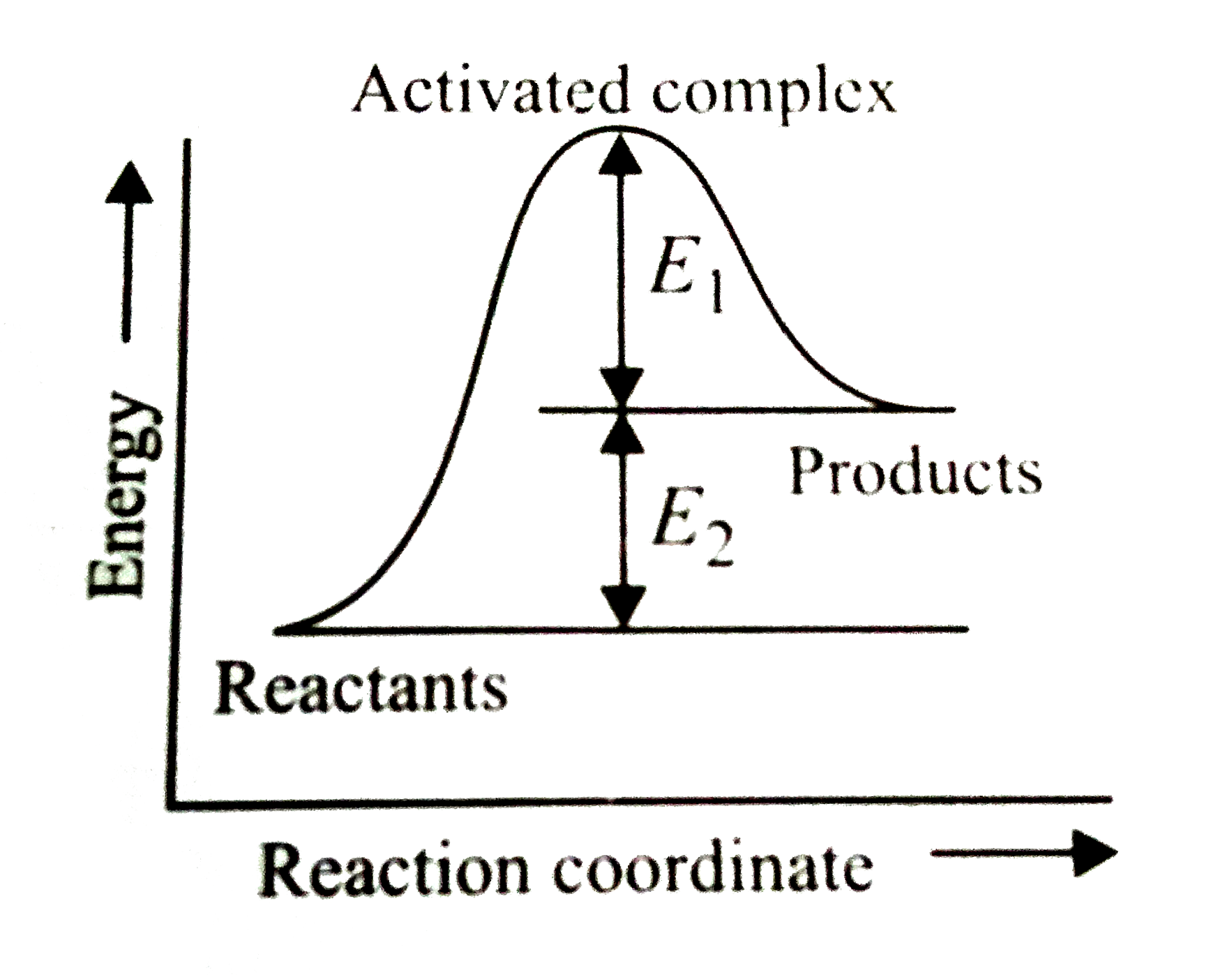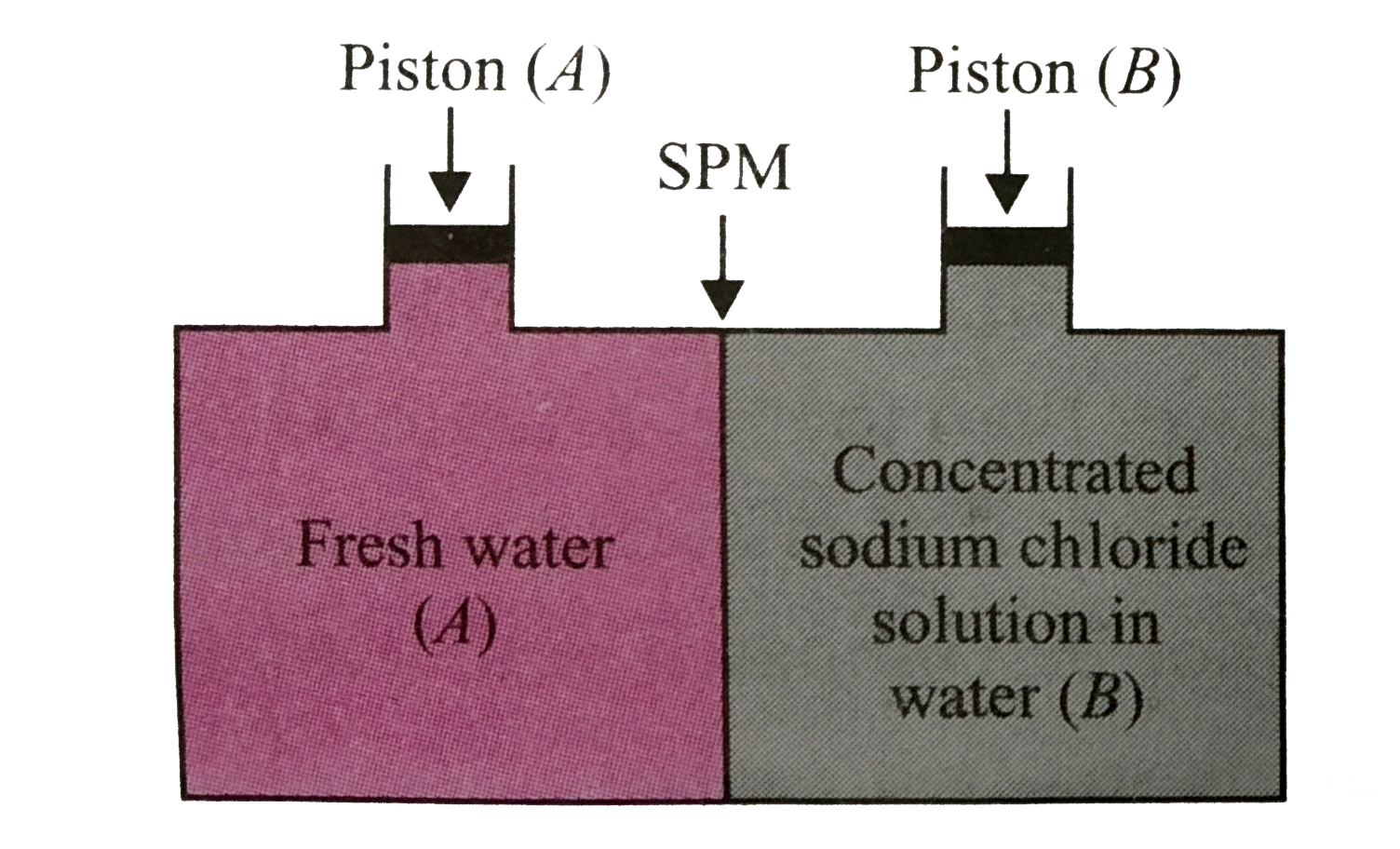Consider the Arrhenius equation given below and mark the correct option.
k=Ae−EaRT
Rate constant increases exponentially with increasing activation energy and decreasing temperature
Rate constant decreases exponentially with increasing activation energy and decreasing temperature
Rate constant increases exponentially with increasing activation energy and decreasing temperature
Rate constant increases exponentially with increasing activation energy and increasing temperature
The correct Answer is:D
Step by step video, text & image solution for Consider the Arrhenius equation given below and mark the correct option. k=A e^(-(Ea)/(RT) by Chemistry experts to help you in doubts & scoring excellent marks in Class 12 exams.
Updated on:21/07/2023Topper's Solved these Questions
- CHEMICAL KINETICSBOOK - GRB PUBLICATIONCHAPTER - CHEMICAL KINETICSEXERCISE - Mechanism of Reactions
45 Videos
- CHEMICAL KINETICSBOOK - GRB PUBLICATIONCHAPTER - CHEMICAL KINETICSEXERCISE - compllcatio in first order reactions
17 Videos
- CHEMICAL KINETICSBOOK - GRB PUBLICATIONCHAPTER - CHEMICAL KINETICSEXERCISE - E. Methods to Monitor the Progress of Reaction
43 Videos
- CHEMICAL BONDING-IBOOK - GRB PUBLICATIONCHAPTER - CHEMICAL BONDING-IEXERCISE - Subjective Type
120 Videos
- COORDINATION COMPOUNDSBOOK - GRB PUBLICATIONCHAPTER - COORDINATION COMPOUNDSEXERCISE - SBJECTIVE TYPE
98 Videos
Similar Questions
Knowledge Check
Consider the Arrhenius equation given below and mark the correct option.
k=Ae−EaRTARate constant increases exponentially with increasing activation energy and decreasing temperatureBRate constant decreases exponentially with increasing activation energy and decreasing temperratureCRate constant increases exponentially with decreasing activation energy and decreasing temperatureDRate constant increases exponentially with decreasing activation energy and increasing temperatureConsider figure and mark the correct option
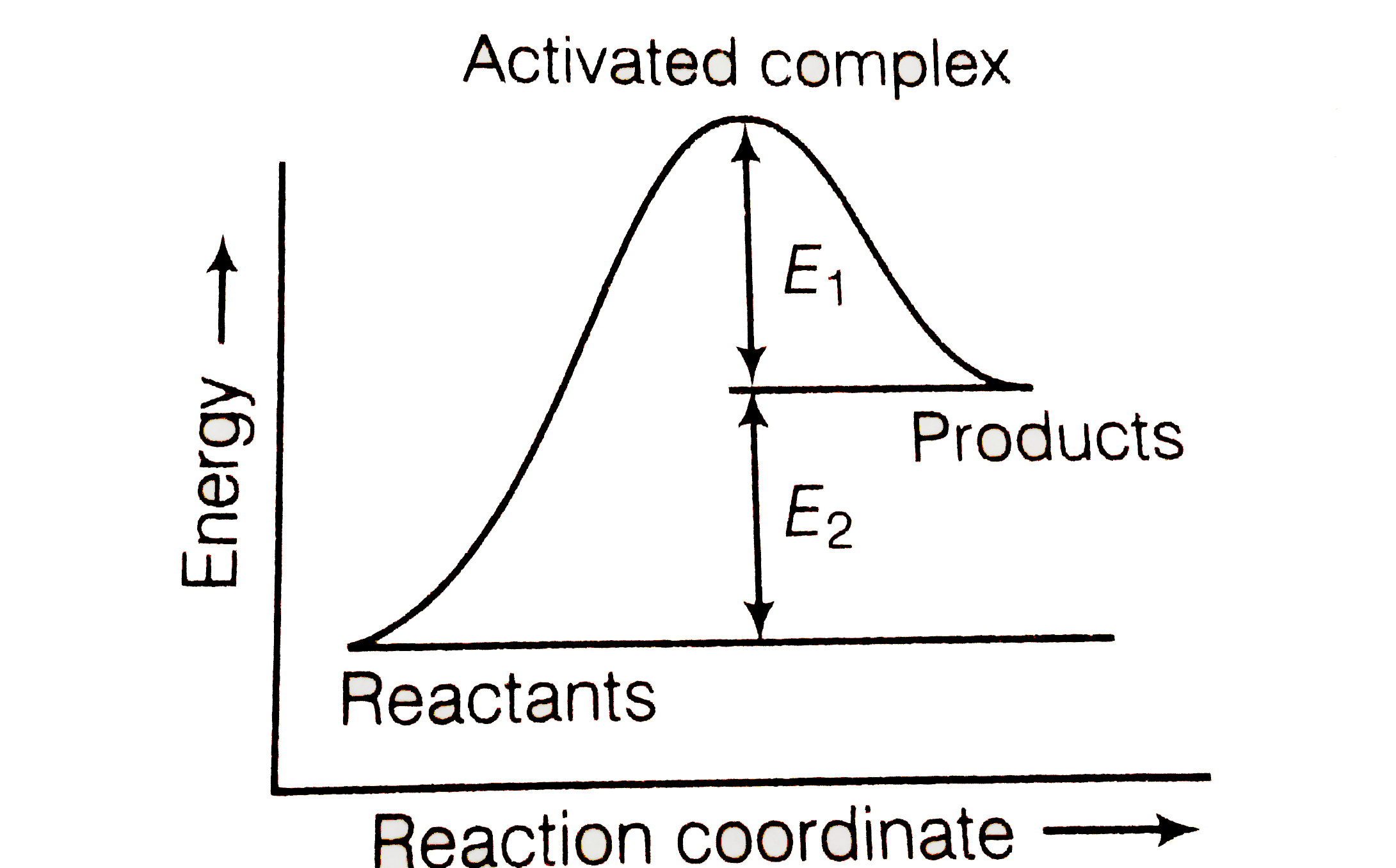 AActivation energy of forward reaction is E1+E2 and product is less stable than reactant .BActivation energy of forward reaction is E1+E2 and product is more stable than reactant.CActivation energy of both forward and backward reaction is E1+E2 and reactant is more stable than productDActivation energy
AActivation energy of forward reaction is E1+E2 and product is less stable than reactant .BActivation energy of forward reaction is E1+E2 and product is more stable than reactant.CActivation energy of both forward and backward reaction is E1+E2 and reactant is more stable than productDActivation energyConsider the Fig.
 and mark the correct option. Awater will move from side (A) to side (B) if a pressure lower than osmotic pressure is applied on piston (B).Bwater will move from side (B) to side (A) if a pressure greater than osmotic pressure is applied on piston (B).Cwater will move from side (B) to side (A) if a pressure equal to osmotic pressure is applied on piston (B).Dwater will move from side (A) to side (B) if pressure equal to osmotic pressure is applied on piston (A).
and mark the correct option. Awater will move from side (A) to side (B) if a pressure lower than osmotic pressure is applied on piston (B).Bwater will move from side (B) to side (A) if a pressure greater than osmotic pressure is applied on piston (B).Cwater will move from side (B) to side (A) if a pressure equal to osmotic pressure is applied on piston (B).Dwater will move from side (A) to side (B) if pressure equal to osmotic pressure is applied on piston (A).
On the basis of info0rmation given below mark the correct option.
View SolutionConsider the given figure and mark the correct option.
View SolutionConsider the figure and mark the correct option.
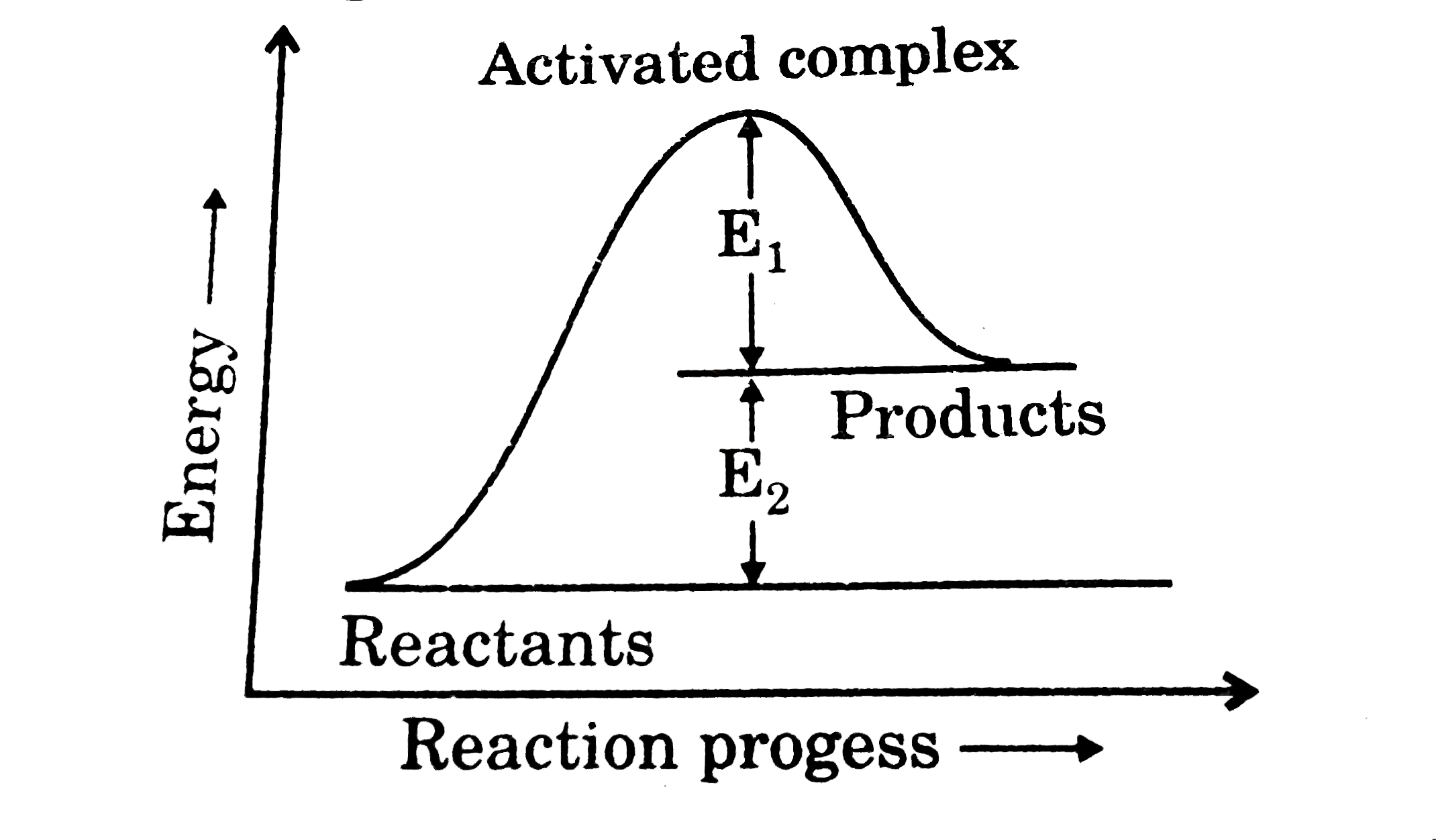
View SolutionConsider the figure and mark the correct option.
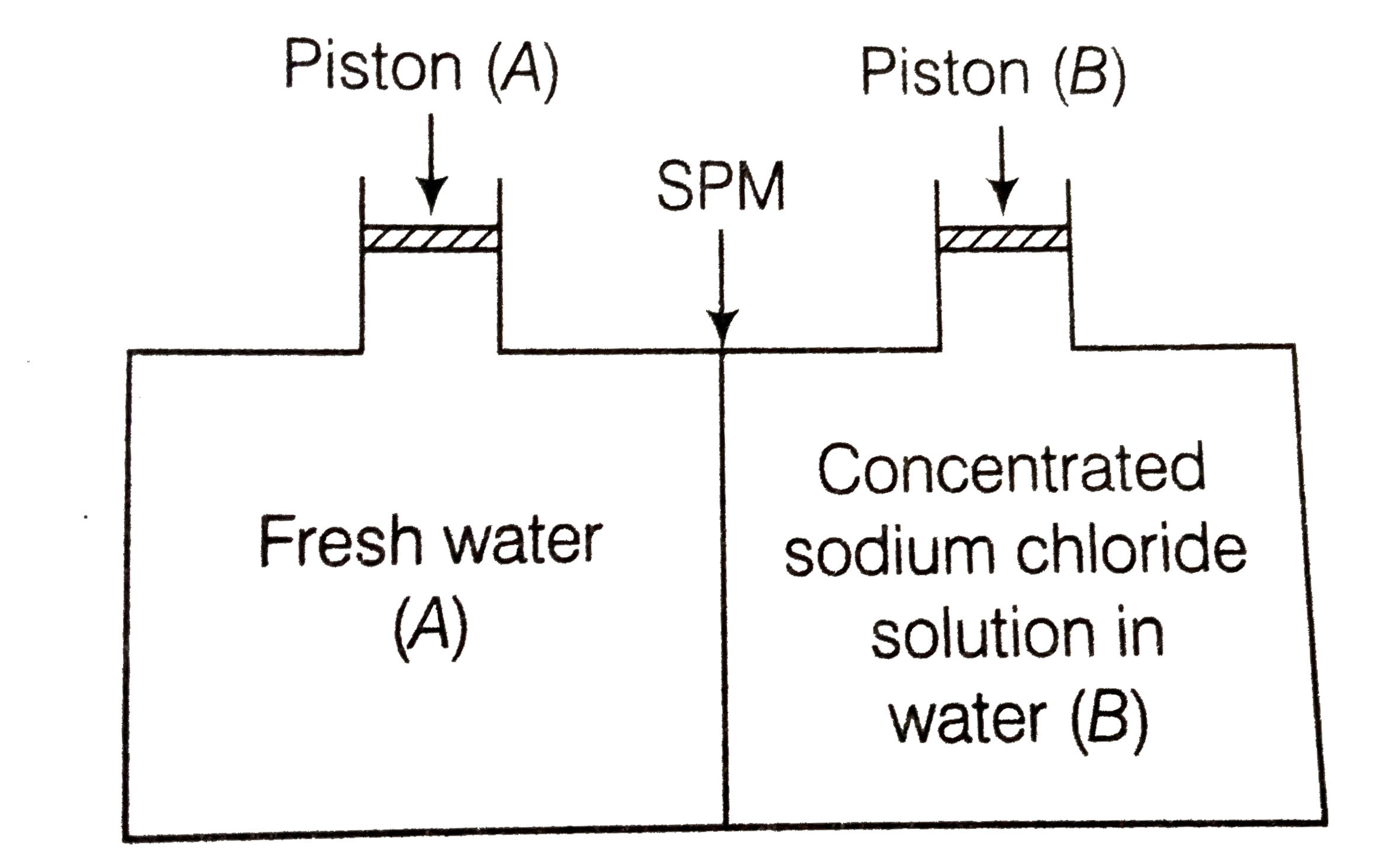
View SolutionConsider the figure and mark the correct option
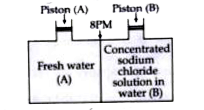
View Solution

